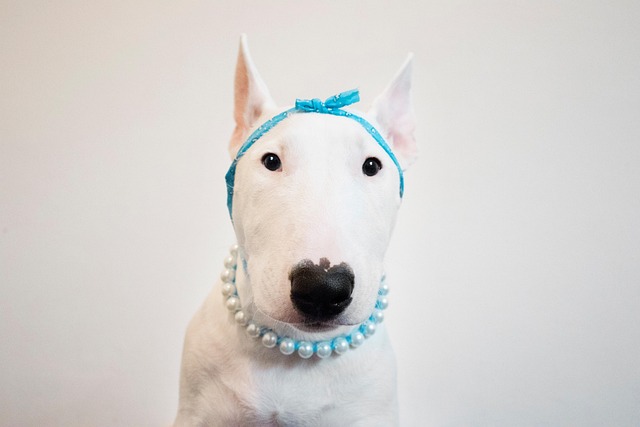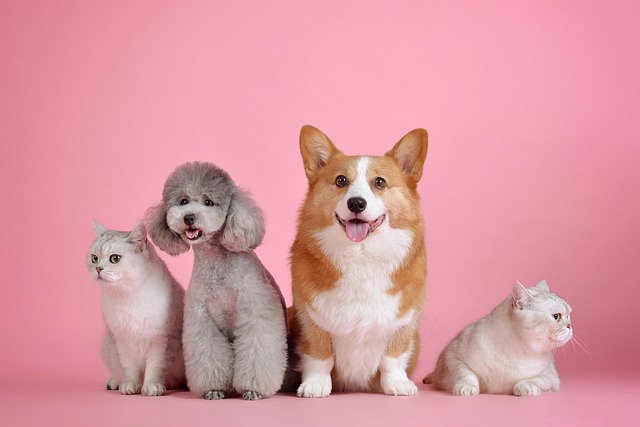
What's wrong with dogs always licking their paws
Watching their furry child constantly licking their paws, with that focused and persistent look, is both heartbreaking and confusing.
When you habitually pet your dog and suddenly notice that its once smooth coat has become rough and prickly, the change in texture will immediately alert you. The condition of a dog's fur is like a health barometer, with each strand silently telling a story about its body. A sudden hardening of the fur is never a coincidence but the result of multiple factors, requiring us to play detective to uncover the underlying causes.
At its core, fur is made of keratin, and its health directly reflects a dog's overall nutritional status. Just as human hair can become dry and brittle due to poor nutrition, a dog's fur often hardens as the first sign of dietary issues. A lack of essential fatty acids, particularly omega-3 and omega-6, can cause the coat to lose its natural shine and softness. Some owners may notice changes in their dog's fur texture shortly after switching food brands. This is because different dog foods vary in their nutritional composition, especially in the quality and quantity of proteins and fats. Dogs fed low-quality kibble or table scraps long-term are more prone to developing dry, stiff fur.
Skin health is inseparable from fur texture. When dogs develop skin problems—such as fungal infections, allergies, or abnormal sebaceous gland secretion—the first symptom is often a change in their coat. Skin allergies can disrupt sebum production, stripping the fur of its natural protective oils, while fungal infections may damage hair follicles, causing new growth to become coarse. Notably, frequent baths or inappropriate grooming products can wash away the skin's protective oils, a common reason for hardened fur in household pets. Generally, dogs only need bathing 1-2 times a month; over-cleaning can backfire.
Age plays a significant role in fur changes. Older dogs naturally develop coarser, drier fur as their skin metabolism slows and sebum production declines. Seasonal changes also affect fur condition; dry winter air and indoor heating can dehydrate the coat, making it feel rough. Some breeds, like Schnauzers and Wire Fox Terriers, naturally have stiffer coats—a breed trait, not a health issue.

Endocrine disorders are another critical factor. Conditions like hypothyroidism and Cushing’s syndrome often alter fur texture, usually accompanied by other symptoms like weight fluctuations, appetite changes, or lethargy. If hardening fur coincides with such systemic signs, prompt veterinary attention is advised. Certain medications, like long-term steroids, may also cause fur changes.
To address hardened fur, a multi-pronged approach is needed. First, evaluate the diet to ensure it contains high-quality proteins and essential fatty acids. Supplements like salmon oil or flaxseed oil, rich in omega-3s, can improve coat quality. Use suitable brushes during grooming; regular brushing removes dead hair and stimulates blood circulation for even oil distribution. Bathe with pH-balanced dog shampoo in lukewarm water, and dry thoroughly. For senior dogs, increase brushing frequency and consider moisturizing products.
If fur hardens suddenly, prioritize ruling out health issues. Seek veterinary care if symptoms like redness, excessive scratching, or hair loss appear. If no disease is found, focus on daily care. Remember, fur recovery takes time—typically 6-8 weeks for visible results. Throughout this process, a owner’s patience and attentiveness matter more than any expensive product. After all, when we pet our dogs, we feel not just their fur but also the unspoken bond between us.

Watching their furry child constantly licking their paws, with that focused and persistent look, is both heartbreaking and confusing.

When you habitually pet your dog and suddenly notice that its once smooth coat has become rough and prickly, the change in texture will immediately alert you.

When we hold the soft and cute puppies in our hands, their furry little bodies and smart eyes instantly melt our hearts. From that moment on, we shoulder the responsibility of taking care of this little life,

You push open the door to find shredded pillow stuffing, chewed-through cables, or claw-marked door frames scattered across the floor—and in an instant,

When you realize that only your absence triggers your otherwise well-behaved companion into anxious behaviors—scratching at the door, barking incessantly,

When we hold the sweet and juicy soft-seeded pomegranates and look at the round, expectant eyes of the dogs around us, we always feel entangled: Can such delicious fruit be shared with our beloved fur children?